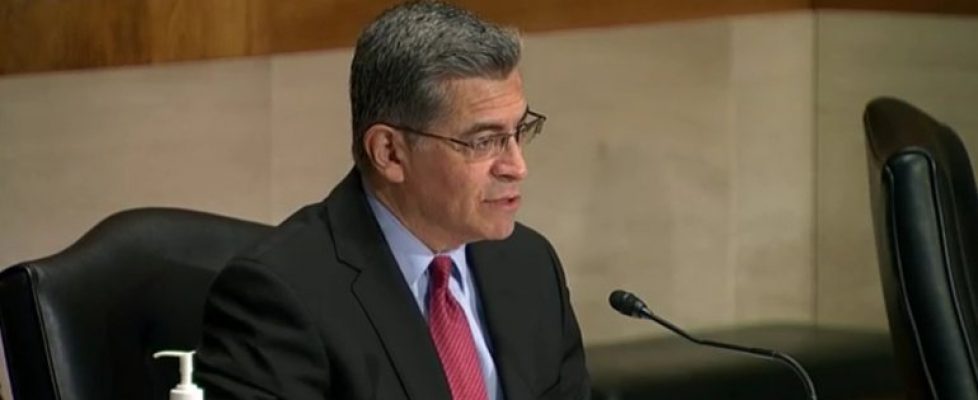Biden admin ‘absolutely supportive’ of telehealth once crisis ebbs, Becerra says
Dive Brief:
- The Biden administration’s top health policy official on Thursday reiterated his support for expanded telehealth access after the COVID-19 national emergency expires, as Congress considers a slate of bills that would permanently nix regulatory barriers to virtual care.
- “We are absolutely supportive of efforts to give us the authority to utilize telehealth in greater ways,” HHS Secretary Xavier Becerra said at a virtual event on digital health hosted by The Washington Post.
- Becerra also stressed that, though affordable telehealth should be available to all, HHS would be doubling down in making sure there’s accountability for quality of care. “We’re going to be doing a lot of bird-dogging, a lot of oversight,” he said.
Dive Insight:
Telehealth use skyrocketed in the early months of COVID-19 as Washington rolled back restrictions to digitally delivered care, allowing patients, kept out of doctor’s offices by state restrictions and fears of virus transmission, to turn to virtual care in droves. As COVID-19 cases waned amid increased vaccination, so too have telehealth visits declined. Still, they remain significantly elevated compared to pre-COVID-19 levels.
Congress is currently deliberating what expanded virtual care flexibilities should remain after the COVID-19 national emergency. Bipartisan lawmakers have expressed support for nixing originating site and geographic requirements to coverage that made it difficult to use telemedicine widely and allowing traditional Medicare to reimburse broadly for the service.
The Alliance for Connected Care is currently tracking 43 bills that include significant telehealth or remote monitoring provisions introduced over the course of COVID-19.
Becerra, the first Latino to hold the role, reiterated Thursday that HHS supports pathways to broader telehealth use in Congress, but stressed it was important to ensure equitable access in doing so.
“We want to make sure we don’t leave anyone behind so that telehealth is available to all Americans, universally. That includes, of course, making sure broadband, quality broadband, is out there for all communities,” Becerra said. The $6 trillion infrastructure package proposed by the White House in May includes $65 billion to ramp up broadband nationwide.
Another key worry is that increased telehealth access could result in higher levels of health spending in the U.S. by virtual visits being billed in addition to, instead of in place of, in-person services.
“We want to make sure that Americans are getting a valuable service,” Becerra said. “We don’t want to be billed for things that don’t result in better services for Americans.”
Becerra, who served as attorney general of California prior to joining HHS, sidestepped a question on whether he’d be in support of an expanded licensure system for physicians. Many states rolled back their state licensure requirements during COVID-19, allowing out-of-state doctors to practice in their geographies to ensure care access during the pandemic.
Becerra instead said it was another question of accountability,arguing the farther away a patient and physician are from one another, the tougher it will be to hold bad actors accountable.
“If your doctor was 3,000 miles away from you, that’s a tougher sell for a consumer who’s trying to get accountability for a service that wasn’t properly provided,” Becerra said.

